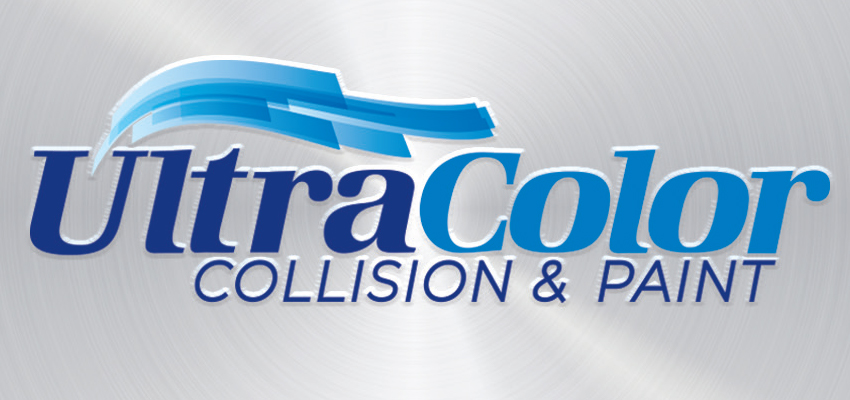
Auto Body Shop Wilmington, NC: Collision Coverage
Collision coverage is a type of auto insurance designed to help pay for repairs to your own vehicle if it’s damaged in a collision, regardless of who was at fault. Whether you’re involved in a crash with another car, hit a stationary object like a tree or pole, or experience a single-vehicle accident such as a rollover, collision coverage can help absorb the cost of getting your car back on the road.
However, it’s important to understand what collision coverage doesn’t include. This type of insurance won’t pay for damage to another driver’s car or any property you may have struck. It also doesn’t cover injuries, which fall under other types of coverage, like liability or personal injury protection. Think of collision coverage as protection for your vehicle only when physical contact results in damage. We are the go-to auto body shop in Wilmington, NC for collision coverage.

What it covers:
Collision insurance is designed to help cover the cost of repairing or replacing your own vehicle when it’s damaged in an accident involving a collision, regardless of who was at fault. Whether you’re navigating city streets, backing out of a driveway, or parked in a lot, accidents can happen, and collision coverage can be a financial safety net in those moments.
This type of coverage typically applies in situations such as:
- Crashing into another vehicle, whether you hit someone or they hit you.
- Hitting a stationary object, like a fence, signpost, tree, or light pole.
- Single-vehicle accidents, such as losing control and striking a barrier or rolling over.
- Hit-and-run incidents, particularly when your vehicle is parked and damaged by an unknown driver.
Collision insurance doesn’t just apply to moving vehicles, it can also kick in when your vehicle is struck while parked. For example, if someone sideswipes your car in a parking lot and drives off without leaving a note, you may be able to file a collision claim. Additionally, collision coverage isn’t limited to just cars. It can often be purchased for a variety of vehicle types, including:
- Motorcycles
- Recreational vehicles (RVs)
- Boats
While not legally required, collision insurance is often recommended, especially if your vehicle is newer, leased, or financed. It can significantly reduce out-of-pocket repair costs and provide peace of mind when the unexpected occurs on the road. We are the go-to auto body shop in Wilmington, NC for collision coverage.
What it doesn’t cover:
While collision insurance can be a crucial part of protecting your vehicle after an accident, it’s important to understand its limitations. Collision coverage is specifically designed to pay for repairs or replacement of your own vehicle when it’s damaged in a crash, but that protection stops there.
Here’s what collision insurance does not cover:
- Damage to another person’s vehicle or property. If you’re at fault in an accident and you damage someone else’s car or property (like a mailbox or fence), those costs fall under your liability insurance, not collision coverage.
- Bodily injuries. Collision insurance does not cover any medical expenses for you, your passengers, or the other party. Injuries sustained in an accident are typically handled by medical payments coverage, personal injury protection (PIP), or bodily injury liability, depending on your policy and state requirements.
- Non-collision damage to your vehicle. If your car is damaged by something other than a crash, such as a hailstorm, a falling tree, a fire, or theft, collision coverage won’t help. These types of incidents are handled by comprehensive coverage, which protects against non-driving-related damage.
Some common examples of situations not covered by collision insurance include:
- A tree falling on your parked car
- Your vehicle being vandalized or stolen
- Hitting a deer or other animal
- Damage caused by flood, fire, or natural disasters
- Medical bills resulting from an accident
If you want broader protection, comprehensive coverage can be added to your policy to cover these types of events. You may also want to consider rental reimbursement coverage, which can help pay for a rental car while your vehicle is in the shop for covered repairs.
Understanding what your collision insurance doesn’t cover is just as important as knowing what it does. By pairing it with other types of coverage, you can create a more complete safety net for both you and your vehicle. We are the go-to auto body shop in Wilmington, NC for collision coverage.
Understanding Collision Coverage Deductibles and Limits
When purchasing collision coverage, two key elements affect how much you’ll pay out of pocket and how much your insurer will cover: your deductible and your coverage limit.
Collision Deductibles: What You’re Responsible For
A deductible is the amount you agree to pay out of pocket before your insurance kicks in to cover repair or replacement costs. When you purchase collision coverage, you’ll typically be given a range of deductible options, commonly $250, $500, or $1,000, although some insurers may offer deductibles as low as $0 or as high as $2,000.
Choosing your deductible is essentially a balancing act between risk and cost:
- Higher deductible = Lower premium. You take on more financial responsibility in the event of an accident, but your monthly insurance bill will likely be lower.
- Lower deductible = Higher premium. You’ll pay more each month, but if your car is damaged, your out-of-pocket expenses will be reduced.
For example, if you select a $500 deductible and your car sustains $1,200 in damage from a covered collision, you would be responsible for the first $500, and your insurer would cover the remaining $700.
Keep in mind: Your vehicle’s value should influence your deductible choice. If your car is older and has a lower market value, it might not make sense to carry a high deductible or collision coverage at all, since the repair payout may not justify the cost. We are the go-to auto body shop in Wilmington, NC for collision coverage.
Coverage Limits: The Maximum Payout
Collision coverage also comes with a limit, which is the maximum amount your insurance company will pay on a claim. This limit is typically the actual cash value (ACV) of your vehicle at the time of the accident. ACV reflects what your car is worth on the open market, factoring in depreciation for age, mileage, wear and tear, and overall condition.
Here’s how that might play out: Let’s say your car is totaled in a collision. Your insurance company would determine the vehicle’s depreciated value, say, $8,000, and subtract your deductible (let’s assume $1,000). You would then receive a payout of $7,000. However, because this is based on depreciated value, you may find that your payout isn’t enough to purchase a comparable new vehicle without contributing your own funds. We are the go-to auto body shop in Wilmington, NC for collision coverage.
Choosing Wisely
Understanding how deductibles and limits work can help you make smarter decisions when selecting or updating your collision coverage. Consider factors like:
- The current market value of your vehicle
- How much can you realistically afford to pay out of pocket
- Your comfort level with financial risk
- Whether your car is financed or leased (in which case, collision coverage may be required)
By tailoring your deductible and knowing your policy’s limitations, you can strike the right balance between cost and protection, ensuring you’re prepared if an accident occurs. We are the go-to auto body shop in Wilmington, NC for collision coverage.
When it’s useful
Collision insurance isn’t required by law, but in many cases, it’s a smart investment, especially if you drive a newer, higher-value, or financed vehicle. If you’re leasing a car or still making payments on a loan, collision coverage is usually mandatory. Lenders and leasing companies typically require it to protect their investment in the event of an accident.
Even if your car is paid off, collision insurance can still be worth considering. Ask yourself: Could I afford to repair or replace my vehicle out of pocket if it were damaged in a crash? If the answer is no, or if the cost would significantly strain your finances, collision coverage can offer valuable peace of mind.
This type of insurance is particularly useful in situations like:
- Driving in high-traffic areas where accidents are more likely
- Living in regions with unpredictable weather or frequent road hazards
- Depending heavily on your car for work or family obligations
- Wanting to avoid the stress of unexpected out-of-pocket repair costs
Your decision ultimately comes down to the value of your vehicle, your personal risk tolerance, and your ability to absorb a financial hit if the unexpected happens. We are the go-to auto body shop in Wilmington, NC for collision coverage.
Final Thoughts: Is Collision Coverage Right for You?
Accidents happen, even to the most cautious drivers. Collision insurance helps soften the financial blow by covering damage to your own vehicle when a crash occurs, whether it’s your fault or not. While it may not be necessary for every driver, it can be an essential layer of protection for those who rely on their vehicles every day.
Ready to explore your coverage options or have questions about your current policy? Reach out to a trusted insurance agent to review your needs and make sure you’re fully protected behind the wheel. Your peace of mind and your vehicle are worth it.
Contact our team of experts today to discuss your collision insurance claims.
Phone: (910) 796-6838
Email: sales@ultracolorcollisionandpaint.com
Our Website: www.ultracolorcollisionandpaint.com





